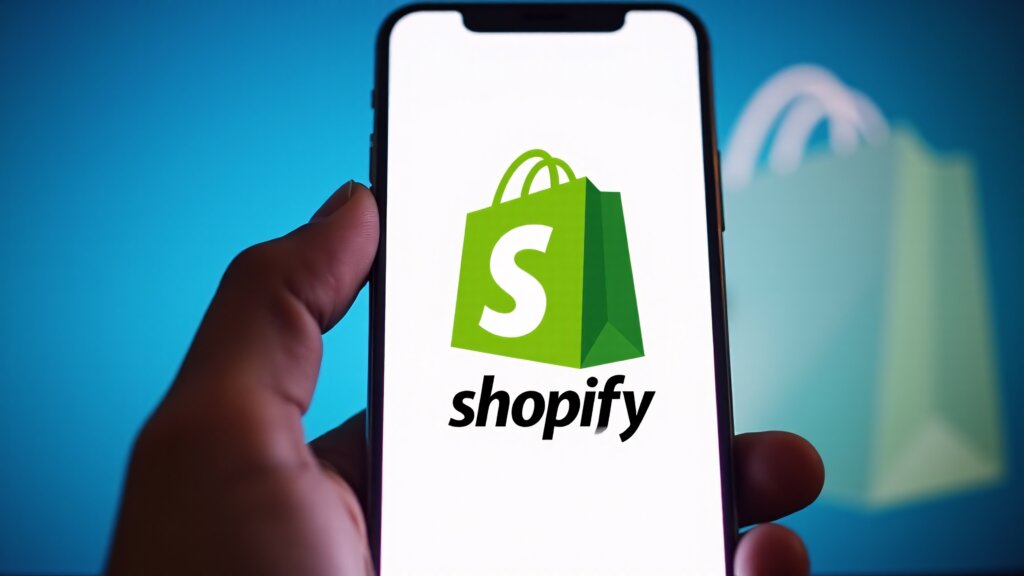Search is no longer a single destination.
For nearly two decades, SEO meant one thing: optimizing for Google. You researched keywords, built backlinks, and waited months to see if your ranking moved. That playbook worked because it was relatively stable. But in 2024 and 2025, the game changed completely.
Today, your audience searches across Google, ChatGPT, Perplexity, Claude, Bing, and voice assistants. Each platform uses AI differently. Each ranks content by different rules. And each one is stealing traffic from the others at alarming speed.
The question isn’t whether AI has changed SEO. It absolutely has. The real question is: have you noticed, and are you adapting?
The New Reality: SEO Traffic Is Splitting Into Two Distinct Channels
Let’s start with the data, because data tells the story better than speculation.
According to research from Previsible, AI-driven sessions across their tracked properties jumped 527% year-over-year between January-May 2024 and the same period in 2025. That’s not incremental growth. That’s a wholesale shift in user behavior.
In one example, ChatGPT traffic to a tracked domain went from 600 visits per month in early 2024 to over 22,000 visits per month by May 2025. That’s a 37x increase in a single year.
Meanwhile, Google’s AI Overviews (those AI-generated summaries that appear above traditional search results) now show on roughly 28% of SERPs. By January 2025, 19% of content appearing in Google search results was AI-generated. And that percentage is only going up.
Here’s the uncomfortable truth: this is creating what we might call “SEO 2.0” and “SEO 3.0” running in parallel.
SEO 2.0 is the traditional world: rank in Google’s organic results, earn clicks, drive traffic to your site. It still works. But it’s becoming a smaller slice of total discovery.
SEO 3.0 is the new world: get discovered and cited by AI systems before your audience even sees a search result. Your content gets synthesized into an AI response, and users get their answer without visiting your site.
Both matter now. Neither can be ignored.
The AI Overviews Effect: Zero-Click Searches Just Became Your Biggest Challenge
Google’s AI Overviews represent a specific threat that deserves its own discussion.
When an AI Overview appears for a query, it pulls information from multiple sources and presents a synthesized answer directly in the search results. From the user’s perspective, this is fantastic: they get their answer instantly. From your perspective, it’s complicated.
Research from seoClarity found that 97% of AI Overviews cite at least one source from the top 20 organic results. That’s actually good news: ranking traditionally still matters for visibility in AI Overviews. But there’s a catch. Being cited doesn’t mean being clicked.
Studies show that when an AI Overview appears, zero-click searches increase. Users find what they need without visiting any website. This is especially true for informational queries: the type that typically generate high search volume but lower commercial intent anyway.
But here’s the nuance: not all verticals are affected equally.
AI Overviews show for roughly 84% of informational queries, but only 12.54% of transactional queries (where users are actively looking to buy or convert). If your traffic comes from transactional keywords, you’re less exposed to the zero-click problem. If you’re in content marketing or information-focused niches, this matters more.
The honest assessment? We don’t fully know the long-term impact yet. Some brands have seen traffic dips. Others haven’t seen much change. The safe play: diversify your traffic sources now, before you’re forced to.
LLMs as Search Engines: The Discovery Channel Nobody Expected
Here’s what makes LLMs fundamentally different from Google.
When someone searches Google, they’re asking the search engine a question. Google returns results, and users click through. It’s a transactional relationship.
When someone asks ChatGPT a question, they’re asking a conversational AI for advice or information. ChatGPT synthesizes answers from across the web and serves them up in a natural, conversational format. The user never sees a list of links. They barely see any links at all.
And here’s what’s fascinating: people’s behavior in these two contexts is completely different.
In the Previsible research, LLM-driven traffic came primarily from specific sectors: legal, finance, health, insurance, and SMB consulting. Why? Because these are domains where people want consultation-style answers, not just raw information. They’re asking “What should I do?” not “What is this?”
This creates an entirely new discovery dynamic. Your content doesn’t have to rank #1 on Google to get traffic from LLMs. It has to be authoritative and relevant enough for an AI system to cite it as a trustworthy source. That’s a different optimization challenge altogether.
The key insight: LLMs reward content that demonstrates genuine expertise and trust in a way that traditional SEO never quite did. You can’t game your way into a ChatGPT response. The AI system has to genuinely believe you’re a credible source.
For more on how AI is reshaping discovery, check out our deep dive on how fintech brands need to prepare for AI visibility.
Optimize Your Brand’s Visibility in AI Search
Why E-E-A-T Became Your Real Competitive Advantage
If there’s one framework that explains why some content thrives in this new AI-powered environment and other content gets buried, it’s E-E-A-T.
Experience, Expertise, Authoritativeness, Trustworthiness. Google introduced these concepts in 2014. But they’ve evolved from a guideline into a survival requirement.
Here’s why: when everything was about ranking in Google, you could compete by being technically sound: solid keyword placement, good backlinks, proper schema markup. That’s still important. But it’s table stakes now.
What Google’s algorithm actually measures (and what LLMs actually trust) is whether content comes from someone who genuinely knows what they’re talking about. Not whether it’s well-written. Not whether it has the right keywords. Whether it demonstrates real expertise.
This shift is profound. It means:
Experience matters more than ever. Google now explicitly rewards first-hand knowledge. A blog post from someone who actually tried a product, visited a location, or worked in a field will outrank research-based content from someone who just read about it. The travel blog written by a frequent climber will beat the AI-generated guide written from Wikipedia articles. Every time.
Expertise requires verification. Generic information that an LLM could generate itself isn’t valuable anymore. What matters is unique insights, proprietary data, original research, and perspectives that only come from doing the work yourself.
Authority builds slower but sticks longer. Backlinks still matter, but they’re just one signal. What actually builds authority is being recognized, cited, and recommended by other experts in your field. That takes time. It can’t be rushed.
Trust is foundational. According to SEMrush research, pages with strong E-E-A-T signals have a 30% higher chance of ranking in the top 3 positions compared to weak signals. Trust isn’t a nice-to-have. It’s the bedrock.
This is where the honest assessment comes in: E-E-A-T is harder to optimize for than traditional SEO. You can’t fake it. You either have expertise or you don’t. You either have a track record or you don’t. You either built genuine authority or you’re still trying to.
But it’s also the best news for publishers who actually know their stuff. If you have real expertise, real experience, and real authority, and you can demonstrate it, you’re suddenly more defensible against both AI-generated content and competitors who are just trying to out-optimize you technically.
The AI Content Reality: Efficiency Gains Are Real, but Quality Requires Human Direction
Let’s talk about what’s probably on your mind: should we be using AI for content creation?
Short answer: yes, with caveats.
Long answer: it’s more nuanced than the binary “use AI” or “don’t use AI” debate suggests.
The data shows that roughly 75% of SEO professionals now use AI to reduce time spent on manual tasks like keyword research, competitor analysis, and technical audits. And it works. AI tools can identify keyword opportunities at scale, spot content gaps, and flag technical issues faster than any human ever could.
For content creation specifically, the ROI is mixed. AI is excellent at:
- Generating outlines and structure for articles
- Creating first drafts that you can then refine
- Producing variations on content themes
- Writing supporting sections and explanations
What AI is terrible at:
- Generating genuinely original insights
- Adding unique perspective or proprietary data
- Demonstrating real-world experience
- Building trustworthiness through authentic voice
Here’s what we’re seeing in practice: content created entirely by AI without human refinement underperforms. Content created by humans, with AI as a tool for drafting and iteration, performs well. The human element (expertise, original thinking, unique voice) is what separates winners from noise.
The honest reality? Most businesses aren’t using AI this way. They’re using it as a shortcut. They’re feeding a prompt to ChatGPT, running the output through Grammarly, and publishing it. Those articles are increasingly visible in search results, and they’re increasingly getting buried by content that actually has substance.
If you have expertise, use AI to scale your output without sacrificing quality. If you don’t have expertise, no amount of AI will save you.
How to Position Your Content for Visibility Across All Platforms
Here’s where strategy gets practical. You’re now competing for visibility across multiple channels simultaneously. That requires a slightly different approach.
Optimize for structure, not just keywords.
Google’s AI systems, and LLMs, both favor content that’s easy to parse. Clear headings, concise paragraphs, direct answers to specific questions. Featured snippet optimization (the kind that actually works) still matters. But it matters more now because AI systems extract and reuse this structure.
Write for humans first. But make sure your structure is AI-readable.
Build topical authority, not just keyword rankings.
Rather than targeting isolated keywords, build comprehensive content clusters around core topics. Write the pillar content. Write the supporting pieces. Connect them semantically. This demonstrates to both Google and LLMs that you actually understand your subject deeply.
This takes more effort. It also creates a moat that’s much harder for competitors to copy.
Emphasize original research, case studies, and proprietary data.
This is where E-E-A-T lives. Original research proves expertise. Case studies prove real-world application. Proprietary data proves you’ve actually done the work. These elements are also increasingly what gets cited by AI systems, because they represent trustworthy, unique information sources.
Use schema markup and structured data.
This won’t single-handedly make you rank. But it helps AI systems understand your content context and relevance. FAQ schema, article schema, how-to schema: implement it. It signals to search systems that your content is organized and credible.
Don’t ignore traditional link building.
Backlinks remain a signal of authority. They matter for Google. They also help with relevance signals for LLMs. A well-researched article from a trusted site that links to you is still valuable, maybe more valuable than ever given how much weight authority now carries.
The Uncomfortable Questions Nobody Can Fully Answer Yet
There’s a lot of certainty in SEO advice right now. Everyone’s got the formula. Most of it is incomplete because we’re genuinely in unprecedented territory.
Here are the questions that should keep you honest:
What happens to Google traffic as AI Overviews expand further? We know zero-click searches increase when AIOs appear. We don’t know if this is a temporary adjustment or a permanent shift. We don’t know if Google will ultimately reduce reliance on traditional organic results to compensate for lost click-through rates. Be prepared for both scenarios.
Will LLMs continue to grow as discovery channels? The 527% growth is real. But it could plateau. Usage could shift. New platforms could emerge. Betting your entire strategy on ChatGPT in 2025 is probably as risky as betting everything on a single social platform in 2015.
Can AI-generated content actually achieve high authority? Current evidence suggests no. Low-quality AI content gets buried, and users can usually tell the difference. But as AI improves, this may change. We don’t know if the E-E-A-T advantage for human expertise is permanent or temporary.
How will regulatory changes affect all of this? If Google faces antitrust action, if LLMs face licensing requirements, if laws change around attribution and citations, everything shifts. We’re potentially one regulatory decision away from major upheaval.
The honest take: if someone tells you they know exactly how SEO will work in 2027, they’re guessing. Stay flexible.
A Practical Starting Point
You don’t need to overhaul your entire SEO strategy tomorrow. But you do need to move.
First, audit where your traffic actually comes from today. Google organic? Direct? Referral? How much of your traffic is from Google, and how much is from social, email, and other channels? This tells you how exposed you are to any single platform’s changes.
Second, identify which of your content is getting cited by AI systems. Use tools like Semrush or Ahrefs to check which of your articles are appearing in or being cited by AI Overviews, Perplexity, or ChatGPT. Notice patterns. What type of content gets picked up?
Third, audit your E-E-A-T signals. Does your byline clearly establish author expertise? Can visitors easily find your credentials? Are your claims backed by original research or credible sources? Is your site secure? Is your privacy policy clear? These signals matter more now.
Fourth, build one new content cluster around a topic where you have genuine expertise. Not where the keywords are easiest. Where you actually have something to say that others don’t. Use this as a test case for balancing AI efficiency (drafting, research, outlining) with human expertise and original thinking.
Fifth, diversify your traffic sources. Don’t put all your growth bets on a single platform. Build an email list. Develop a presence on platforms where your audience actually gathers. If search visibility changes, you’re not entirely dependent on it.
This isn’t about panic. It’s about evolution. SEO hasn’t died. It’s just gotten bigger, more complex, and more competitive. The good news is that if you have genuine expertise, you’ve never had a better time to prove it.
How to Build an SEO Strategy That Works in 2025
The tactics that ranked content in 2020 don’t work anymore. And the strategies that worked in 2024 need updating for what we’re seeing now. But the fundamental truth hasn’t changed: authenticity, expertise, and strategic thinking still win.
If you’re looking to navigate this shift and build a content strategy that ranks across Google, AI Overviews, and LLM platforms, we can help. Check out our guide on the top AI SEO agencies to understand what to look for in a partner, or contact our team to discuss how we can help you adapt your SEO strategy to this new landscape.
The future of search belongs to brands that embrace both strategy and authenticity. Let’s make sure you’re one of them.
Optimize Your Brand’s Visibility in AI Search
Millions turn to AI platforms daily to discover and decide. Make sure they find your brand.






